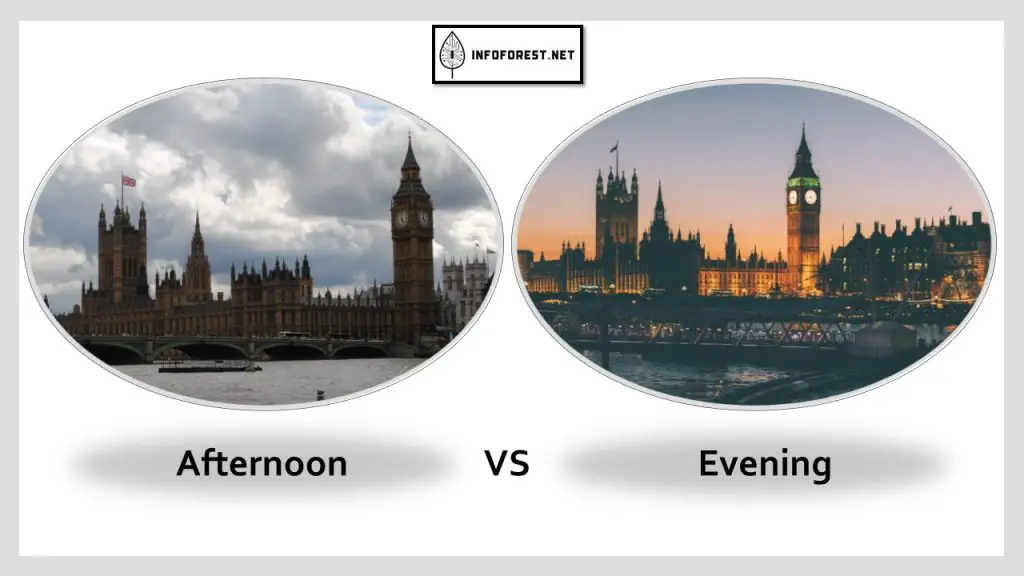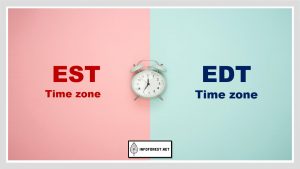
The concept of dividing the day into different parts is a cultural and social construct that varies around the world. In many Western cultures, the day is typically divided into morning, afternoon, evening, and night. These divisions are based on the natural rhythms of the sun and are used to organize and schedule activities.
- Morning is the time of day from around 6:00 a.m. to around noon. It is typically considered the start of the day and is a time when people wake up, get ready for their day, and have breakfast.
- Afternoon is the time of day from around noon to around 6:00 p.m. It is a time when people usually have lunch and may also have a break from work or school.
- Evening is the time of day from around 6:00 p.m. to around 9:00 p.m. or later. It is a time when people typically have dinner and may engage in leisure activities or spend time with family and friends.
- Night is the time of day from around 9:00 p.m. to around 6:00 a.m. It is a time when people typically sleep and the world is generally quieter.
The specific times that these parts of the day begin and end can vary depending on the location and the individual’s schedule.
Comparison chart
Here is a chart that illustrates the different parts of the day and the approximate times that they begin and end:
| Part of the Day | Time |
|---|---|
| Morning | 6:00 a.m. – noon |
| Afternoon | noon – 6:00 p.m. |
| Evening | 6:00 p.m. – 9:00 p.m. or later |
| Night | 9:00 p.m. – 6:00 a.m. |
It’s important to note that these are approximate times and can vary depending on the location and individual’s schedule.

Evening and Afternoon in Philology
In philology, the study of language and literature, the terms “evening” and “afternoon” can be analyzed in terms of their etymology, or history of their usage and meanings.
“Evening” is derived from the Old English “æfnung,” which means “the coming of evening.” The word “evening” has been in use in the English language since around the 9th century and has undergone various changes in spelling and pronunciation over time. In Middle English, it was spelled “eving,” and in Old English, it was spelled “æfnung.”
“Afternoon” is derived from the Old English “æfterdæg,” which means “afternoon” or “the day after.” The word “afternoon” has been in use in the English language since around the 14th century and has also undergone various changes in spelling and pronunciation over time. In Middle English, it was spelled “afternon,” and in Old English, it was spelled “æfterdæg.”
In a philological context, these terms could be analyzed in terms of their evolution and usage over time, as well as their cultural and historical context.

Evening and Afternoon in other languages
Here are the translations for “evening” and “afternoon” in a few different languages:
- French: “soir” (evening), “après-midi” (afternoon)
- Spanish: “tarde” (afternoon), “noche” (evening)
- German: “Abend” (evening), “Nachmittag” (afternoon)
- Italian: “sera” (evening), “pomeriggio” (afternoon)
- Japanese: “夜” (よる/yoru, evening), “午後” (ごご/gogo, afternoon)
- Chinese: “晚上” (wǎnshàng, evening), “下午” (xiàwǔ, afternoon)
It’s worth noting that the divisions of the day and the specific terms used to refer to them can vary somewhat between languages and cultures. In some languages and cultures, there may be additional divisions of the day, such as “midmorning” or “late afternoon.” In other languages, the same term may be used to refer to both “afternoon” and “evening.”
Conclusion
In conclusion, “evening” and “afternoon” are terms that are used to refer to specific parts of the day. Evening is the time of day after the afternoon, typically from around 6:00 p.m. to around 9:00 p.m. or later. Afternoon is the time of day between noon and evening, typically from around 12:00 p.m. to around 6:00 p.m. These terms are derived from Old English and have been in use in the English language for centuries. In other languages and cultures, there may be different terms and divisions of the day. The specific times that these parts of the day begin and end can vary depending on the location and individual’s schedule.
We also invite you not to miss our other popular articles such as:
How to lose weight fast, How Many Ounces in a Gallon
and How To Delete Instagram Account.



